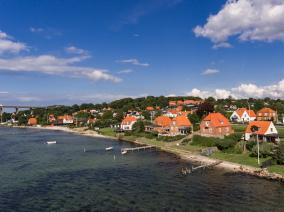The principles of EDEN as of 2022
The European Destination of Excellence competition addresses smaller tourism destinations, which can showcase their outstanding achievements in sustainability and inspire other tourism destinations in their green transition. The umbrella theme for the competition is "Sustainable tourism".
The principles of EDEN 2007-2019
The principle of EDEN is simple: every other year a theme is chosen by the European Commission in close cooperation with national tourism authorities. Eligible destinations have to show that an economically viable tourism offer has been developed based on that year’s EDEN theme. Per each participating country one destination is selected as a winner, alongside 4 runners-up.
Each theme serves to showcase Europe's diversity, including its natural resources, historical heritage, traditional celebrations and local gastronomy. The topics are always related to sustainable tourism development, whether from a cultural, economic, environmental or local involvement point of view.
The destinations have the chance to show off what makes them unique and show tourists that an unforgettable experience awaits them. The winning destinations are the emerging, non-traditional destinations that best reflect the chosen theme of the year and that offer a unique tourism experience, in line with sustainable models.
2019: Health and well-being tourism
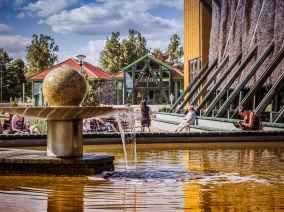
The theme for the 9th EDEN edition is Health and well-being tourism.
17 European countries took part in the 2019 edition. One winner and up to four runners-up were selected by each country. The winning destinations have successfully implemented a tourism offer providing wellness tourism services based on the destination’s natural or cultural, historical, spiritual resources.
These include, but are not limited to water-based and sweat-bathing treatments and facilities, manual-pressure based and manipulative body-based therapies, herbal medicine and natural remedies, healthy nutrition and diet, exercise and fitness, mind/body interventions, meditation and relaxation techniques and education activities, etc. The specific tourism offer should have been implemented at least since 2017.
Additionally, each destination had to respect the following general award criteria
- be emerging, non-traditional and off-the beaten track
- offer authentic tourism experiences (i.e. a sense of place must be embedded across all activities)
- have local authorities with a capacity in managing their destination in a way to ensure social, cultural and environmental sustainability
- have a management organisation that has a capacity in sustainable tourism management
- have agencies, NGOs or authorities with the capacity to adopt sustainable tourism practices.
Winning destinations
- Kostenets, Bulgaria
- Sveti Martin na Muri, Croatia
- Miliou, Cyprus
- Zlínsko & Luhačovicko, Czech Repblic
- Pärnu, Estonia
- Western Lakeland, Finland
- Strandhill, Ireland
- Valdichiana Senese, Italy
- Veclaicene, Latvia
- Paliesius, Lithuania
- Żejtun, Malta
- Gołdap, Poland
- Tăuții Măgherăuș, Romania
- Kursumlija, Serbia
- Podčetrtek, Slovenia
- Ambroz Valley, Spain
- Balıkesir, Turkey
2017: Cultural Tourism
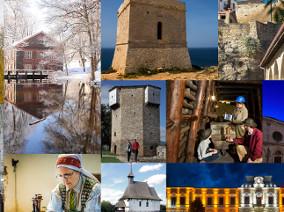
The theme for the 8th EDEN edition is Cultural Tourism.
18 European countries took part in the 2017 edition. One winner and up to 4 runners-up were selected by each country. The winning destinations have successfully implemented a tourism offer based on their local tangible cultural heritage assets. These include, but are not limited to cultural-historical heritage or contemporary culture, such as traditional historical or archaeological monuments/sites, industrial sites, museums, theatres, galleries, contemporary architectural sites, modern urban districts, ‘ethnic pockets’ of towns, etc. The specific tourism offer should have been implemented at least since 2015.
Additionally, each destination had to respect the following general award criteria:
- be emerging, non-traditional and off-the beaten track
- offer authentic tourism experiences (i.e. a sense of place must be embedded across all activities)
- have local authorities with a capacity in managing their destination in a way to ensure social, cultural and environmental sustainability
- have a management organisation that has a capacity in sustainable tourism management
- have agencies, NGOs or authorities with the capacity to adopt sustainable tourism practices.
Winning destinations
- La Louvière, Belgium
- Yambol municipality, Bulgaria
- Vukovar-Vučedol-Ilok, Croatia
- Orini Larnakas, Cyprus
- Eagle mountains and foothills - Chateaux on Orlice river, Czech Republic
- Fiskars Village, Finland
- Centre Historique Minier, France
- Patra, Greece
- The Route of Medieval Churches in the Upper-Tisza Region, Hungary
- Scattery Island/Kilrush, Clare, Ireland
- Cēsis Municipality, Latvia
- Pakruojis Manor, Lithuania
- Qrendi, Malta
- Multicultural current of the Bug River, Poland
- Suceava City, Romania
- Novi Pazar, Serbia
- Koper, Slovenia
- Land of Saint Ignatius, Spain
2015: Tourism and local gastronomy
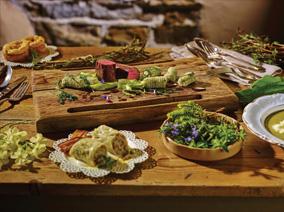
The theme for the seventh EDEN edition is Tourism and local gastronomy.
20 European countries have participated in this edition and each country has selected one winning destination and up to four runners-up. The winning destinations have successfully implemented a tourism offer based on their specific local gastronomy.
Additionally, each destination had to respect the following general award criteria:
- be 'non-traditional' with a low number of visitors (in comparison with the national average)
- manage their own tourism offer in a way that ensures social, cultural and environmental sustainability
- be managed by a partnership between the public authorities and all those involved in tourism in and around the area (public-private partnerships are admitted)
- From 2013, destinations also had to have in place, or under preparation, a marketing management structure and a defined strategy for sustainable tourism development.
Winning destinations
- Mostviertel Tourism, Austria
- Waimes, Belgium
- Gornje Medimurje, Croatia
- Pitsilia region, Cyprus
- Jeseniky, Czech Republic
- Hiiumaa, Estonia
- Tournus and the Tournougeois, France
- Mecsek Greenway, Hungary
- Skagafjordur Food Chest, Iceland
- The Burren Food Trail, Ireland
- Guardiagrele, City of Taste, Italy
- Latgale region, Latvia
- A spit cake in Jaskonys, Druskininkai municipality, Lithuania
- Xaghra, Malta
- The Silesian Tastes Culinary Route, Poland
- Marginimea Sibiului, Romania
- Pirot, Serbia
- Brda, Slovenia
- Goierri, Basque Country, Spain
- Gaziantep, Turkey
2013: Accessible tourism
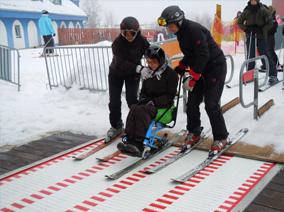
The theme for the 2013 EDEN awards was Accessible tourism. Winning destinations have based their tourism offer on accessibility for tourists regardless of their special needs, limitations, disabilities or age.
Five main aspects of accessibility were particularly taken into consideration for the award:
- the destination is barrier-free (infrastructure and facilities)
- the destination is accessible by transport means suited to all users
- the services provided are of high quality and delivered by trained staff
- the activities, exhibits, attractions allow participation by everyone
- the marketing, booking systems, websites and services provide information accessible to all.
Additionally, each destination had to respect the following general award criteria:
- be 'non-traditional' with a low number of visitors (in comparison with the national average)
- manage their own tourism offer in a way that ensures social, cultural and environmental sustainability
- be managed by a partnership between the public authorities and all those involved in tourism in and around the area (public-private partnerships are admitted)
- From 2013, destinations also had to have in place, or under preparation, a marketing management structure and a defined strategy for sustainable tourism development.
A call for proposals was launched by the Commission in March 2012. Participating countries selected the winning destinations among the candidate destinations, and the winners were officially awarded in Brussels on 12 November 2013.
Winning destinations
- Kaunertal Valley, Austria
- Ottignies - Louvain-la-Neuve, Belgium
- Stancija 1904 - Svetvinčenat, Croatia
- Polis Chrysochous Municipality, Cyprus
- Lipno, Czech Republic
- Haapsalu City, Estonia
- Morvan Regional Nature Park, France
- Municipality of Marathon, Greece
- Kaposvar and the Zselic area, Hungary
- Cavan Town and Environs, Ireland
- Pistoia and Province, Italy
- Liepaja, Latvia
- Telsiai, Lithuania
- Horsterwold, The Netherlands
- Przemysl, Poland
- Jurilovca, Romania
- Lasko, Slovenia
- Natural Park of Guara’s Mountains and Canyons, Spain
- Tarakli District, Turkey
2011: Tourism and regeneration of physical sites
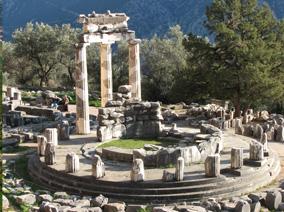
The 2011 quest rewarded destinations which have regenerated a physical site of local heritage and converted it into a tourism attraction to be used as a catalyst for wider local regeneration.
A call for proposals was launched by the Commission in March 2011. Participating countries selected the winning destinations among the candidate destinations, and the winners were officially awarded in Brussels on 27 September 2011.
Each destination had to respect the following general award criteria:
- be 'non-traditional' with a low number of visitors (in comparison with the national average)
- manage their own tourism offer in a way that ensures social, cultural and environmental sustainability
- be managed by a partnership between the public authorities and all those involved in tourism in and around the area (public-private partnerships are admitted).
Winning destinations
- City of Gmund / Carinthia, Austria
- Marche-en-Famenne, Belgium
- Pustara Visnjica, Croatia
- Kalopanayiotis, Cyprus
- Slovacko, Czech Republic
- Lahemaa National Park Manors, Estonia
- Roubaix, France
- Municipality of Delphi, Greece
- Mecsek, Hungary
- Stykkisholmur Municipality, Iceland
- The Great Western Greenway, Co Mayo, Ireland
- Montevecchio, Municipality of Guspini, Italy
- Ligatne Village, Latvia
- Rokiskis Manor, Lithuania
- Gharb, Malta
- Veenhuizen, The Netherlands
- Zyrardow, Poland
- Faial Nature Park, Portugal
- Alba Iulia, Romania
- Idrija, Slovenia
- Trasmiera Ecopark, Spain
- Hamamonu-Altindag Ankara, Turkey
2010: Aquatic tourism
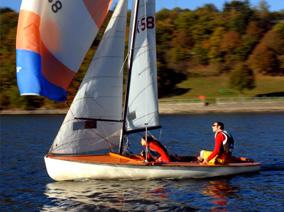
The 2010 quest focused on coastal, lake and riverside destinations that promote innovative approaches towards their aquatic tourism offer. The winning destinations focus on developing a higher quality environment, addressing the seasonality issue and rebalancing tourist flows from the most famous and crowed tourist destinations.
The call for proposals was launched by the Commission in February 2010. Participating countries selected the winning destinations among the candidate destinations and the winners were officially awarded in Brussels on 27 September 2010.
Each destination had to respect the following general award criteria:
- be 'non-traditional' with a low number of visitors (in comparison with the national average)
- manage their own tourism offer in a way that ensures social, cultural and environmental sustainability
- be managed by a partnership between the public authorities and all those involved in tourism in and around the area (public-private partnerships are admitted).
Winning destinations
- Seelentium, Austria
- Lacs d'eau d’heure, Belgium
- Silistra Region, Bulgaria
- Nin, Croatia
- Kato Pyrgos, Cyprus
- Bystricko, Czech Republic
- Lake Vortsjarv, Estonia
- Saimaa Holiday, Finland
- The Grand Site du Marais Poitevin, France
- Western Pomeranian River District, Germany
- Prefecture of Serres, Greece
- Lake Tisza, Hungary
- The Westfjords region, Iceland
- Loop Head Peninsula in Co. Clare - Kilkee, Ireland
- Municipality of Monte Isola, Italy
- Sea Resort Jurmala, Latvia
- Zarasai Region - Heavenly Shore on Earth, Lithuania
- The Nature Park of the Upper Sure, Luxembourg
- Isla (Senglea), Malta
- WaterReijk Weerribben Wieden - Giethoorn and the wetlands, Netherlands
- The Biebrza Valley and Wetlands – Wildlife Sanctuary, Poland
- Geoagiu Bai, Romania
- River Kolpa, Slovenia
- A Guarda, Spain
- Bitlis – Nemrut Crater Lake, Turkey
2009: Tourism and protected areas
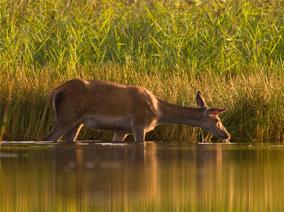
The 2009 EDEN award focused on promoting sustainable tourism in protected areas. Eligible destinations were protected areas and/or the areas bordering them where an economically viable tourism product has been developed using the protected area as an asset, all the while respecting the protected environment and meeting the needs of local residents and visitors.
The call for proposals was launched by the Commission in March and 22 countries responded. 22 destinations of excellence were officially awarded on the occasion of the European Tourism Forum in October 2009.
Each destination had to respect the following general award criteria:
- be 'non-traditional' with a low number of visitors (in comparison with the national average)
- manage their own tourism offer in a way that ensures social, cultural and environmental sustainability
- be managed by a partnership between the public authorities and all those involved in tourism in and around the area (public-private partnerships are admitted).
Winning destinations
- Biosphere Park Grosses Walsertal, Austria
- Viroinval / Viroin-Hermeton Nature Park, Belgium
- Belitsa, Blagoevgrad region, Bulgaria
- Nacionalni park Sjeverni Velebit, Croatia
- Vouni Panagias, Cyprus
- Bohemian Switzerland, Czech Republic
- Soomaa National Park, Estonia
- Wild Taiga, Finland
- Northern Vosges Regional Natural Park, France
- Prefecture of Lesvos, Greece
- Irottko Nature Park, Hungary
- Sheep’s Head peninsula, Ireland
- Marine Protected Area 'Penisola del Sinis - Isola di Mal di Ventre', Italy
- Tervete Nature park, Latvia
- Nemunas Delta Regional Park - Unique Terrain of Harmony of Nature, Culture and Tourism, Lithuania
- Recreation area and nature reserve 'Haff Reimech (Commune of Schengen), Luxembourg
- Mellieha and the Hamlet of Manikata, Malta
- Park Gravenrode, Netherlands
- The Bird Republic in the Warta Mouth, Poland
- Apuseni Nature Park, Romania
- Solcavsko, Slovenia
- The Ebro Delta, Spain
- Kars - Kuyucuk Lake Wild Life Reserve, Turkey
2008: Tourism and local intangible heritage
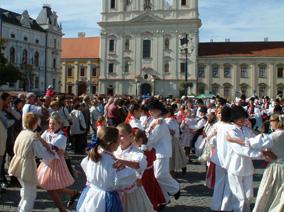
In 2008, destinations were awarded, not for their monuments or facilities, but for the traditions they have inherited and preserved through the generations. This living or ‘intangible’ heritage serves to bring people closer to the communities they live in by giving them a sense of identity and continuity. It includes culinary traditions, handcrafts, local arts and rural life.
20 destinations of excellence were awarded to 18 EU countries and 2 candidate countries. The award ceremony took place at the European Tourism Forum in Bordeaux, France in September 2008.
Each destination had to respect the following general award criteria:
- be 'non-traditional' with a low number of visitors (in comparison with the national average)
- manage their own tourism offer in a way that ensures social, cultural and environmental sustainability
- be managed by a partnership between the public authorities and all those involved in tourism in and around the area (public-private partnerships are admitted).
Winning destinations
- Steirisches Vulkanland, Austria
- Ath, Belgium
- Belogradchik, Bulgaria
- Durdevac, Croatia
- Agros, Cyprus
- Viljandi, Estonia
- Route des vins du Jura, France
- Grevena, Greece
- Hortobagy, Hungary
- Carlingford and the Cooley Peninsula, Ireland
- Corinaldo, Italy
- Rezekne, Latvia
- Plateliai, Lithuania
- Echternach, Luxembourg
- Kercem, Malta
- Horezu Depression, Romania
- Knjazevac, Serbia
- The Soca Valley, Slovenia
- Sierra de las Nieves, Spain
- Edirne, Turkey
2007: Best emerging European rural destination of excellence
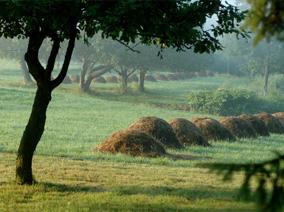
For the first awards in 2007, Europe rediscovered its rural dimension. The search was directed towards destinations that supported the development of rural tourism by making the most of their heritage, offering new products and improving the spread of visitors over seasons.
Ten destinations of excellence were awarded the title 'Best emerging European rural destination of excellence'. 9 EU countries and one candidate country took part in the project. The award ceremony took place at the European Tourism Forum in Algarve, Portugal, 25-26 October 2007.
Each destination had to respect the following general award criteria:
- be 'non-traditional' with a low number of visitors (in comparison with the national average)
- manage their own tourism offer in a way that ensures social, cultural and environmental sustainability
- be managed by a partnership between the public authorities and all those involved in tourism in and around the area (public-private partnerships are admitted).

